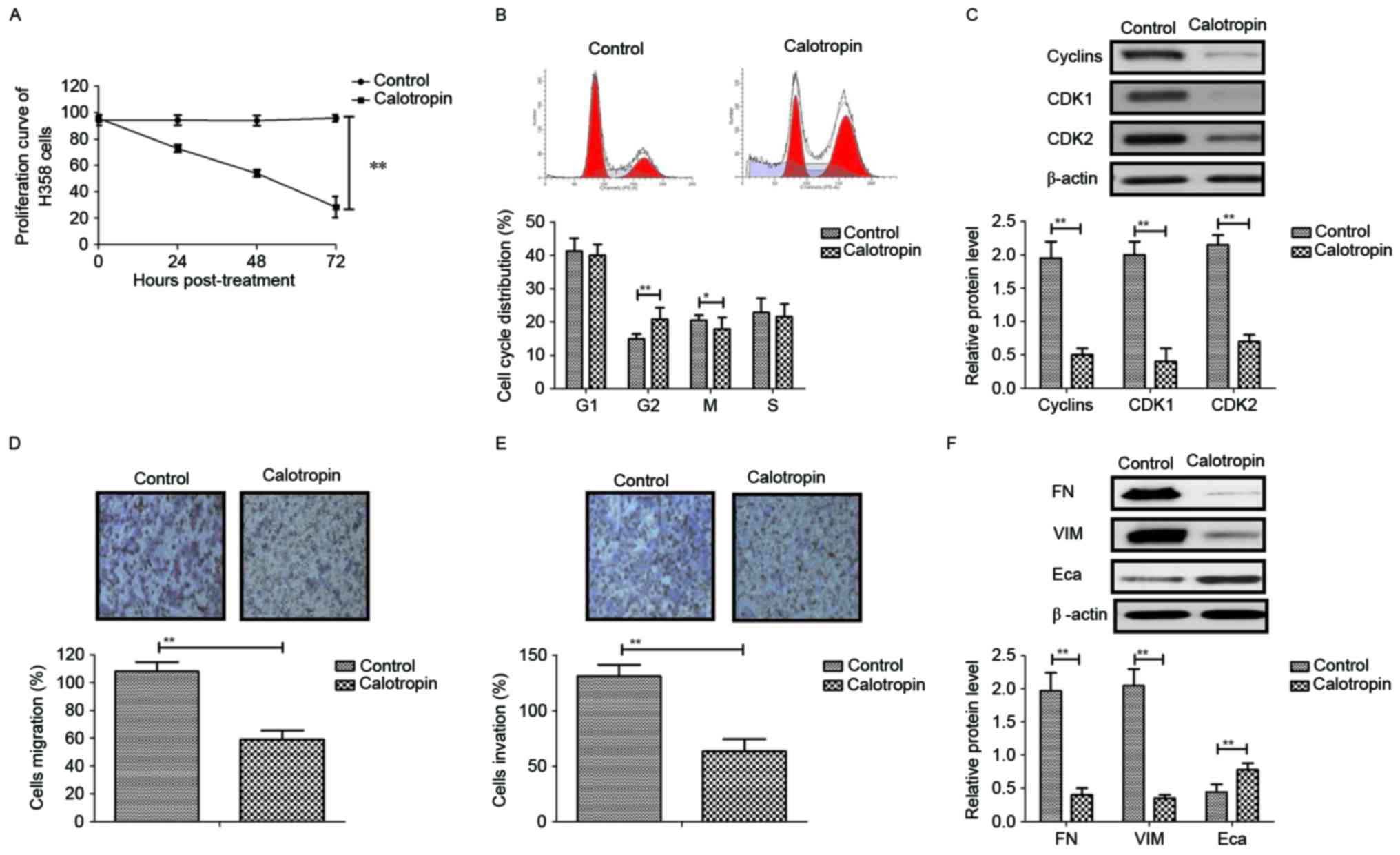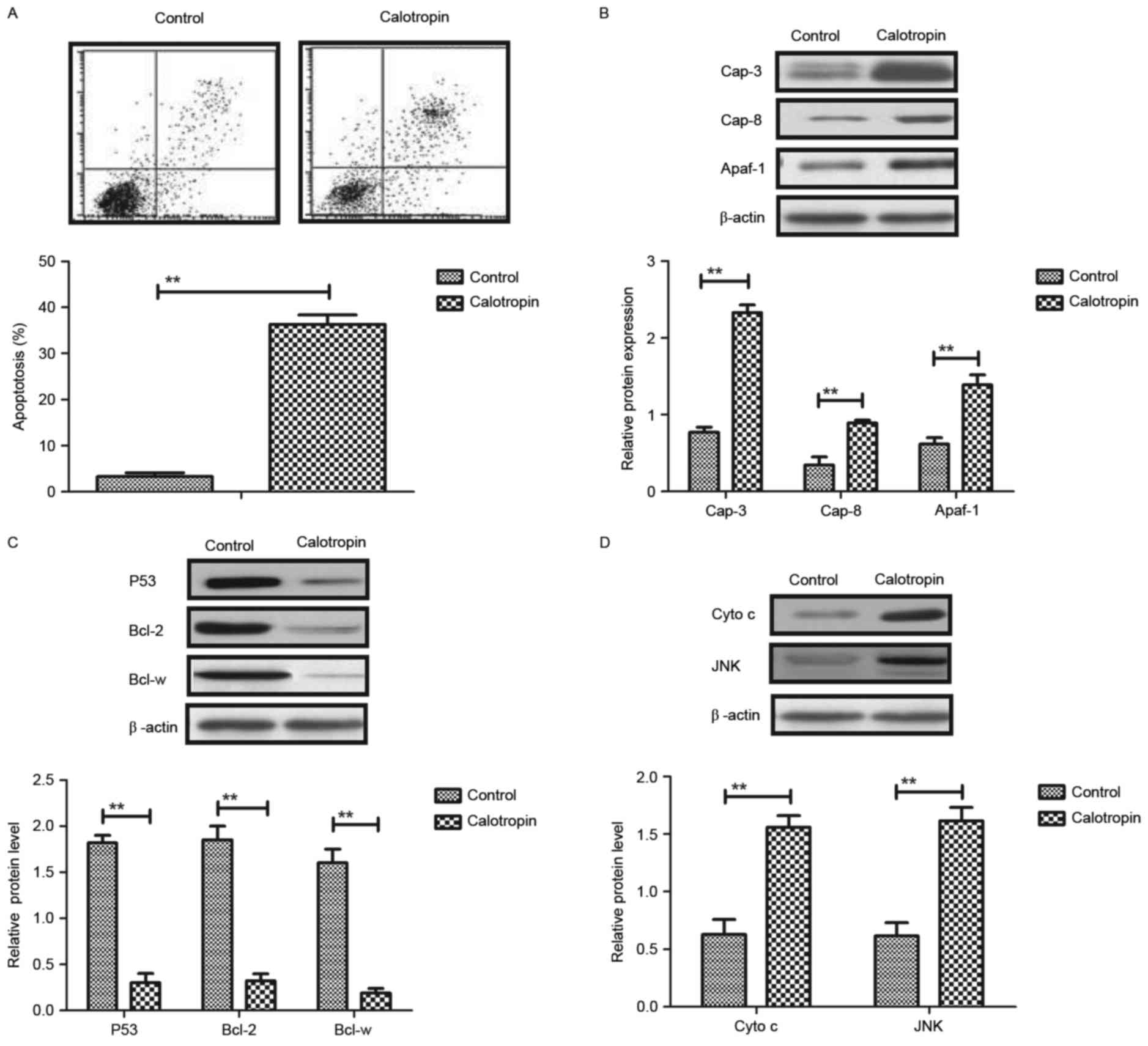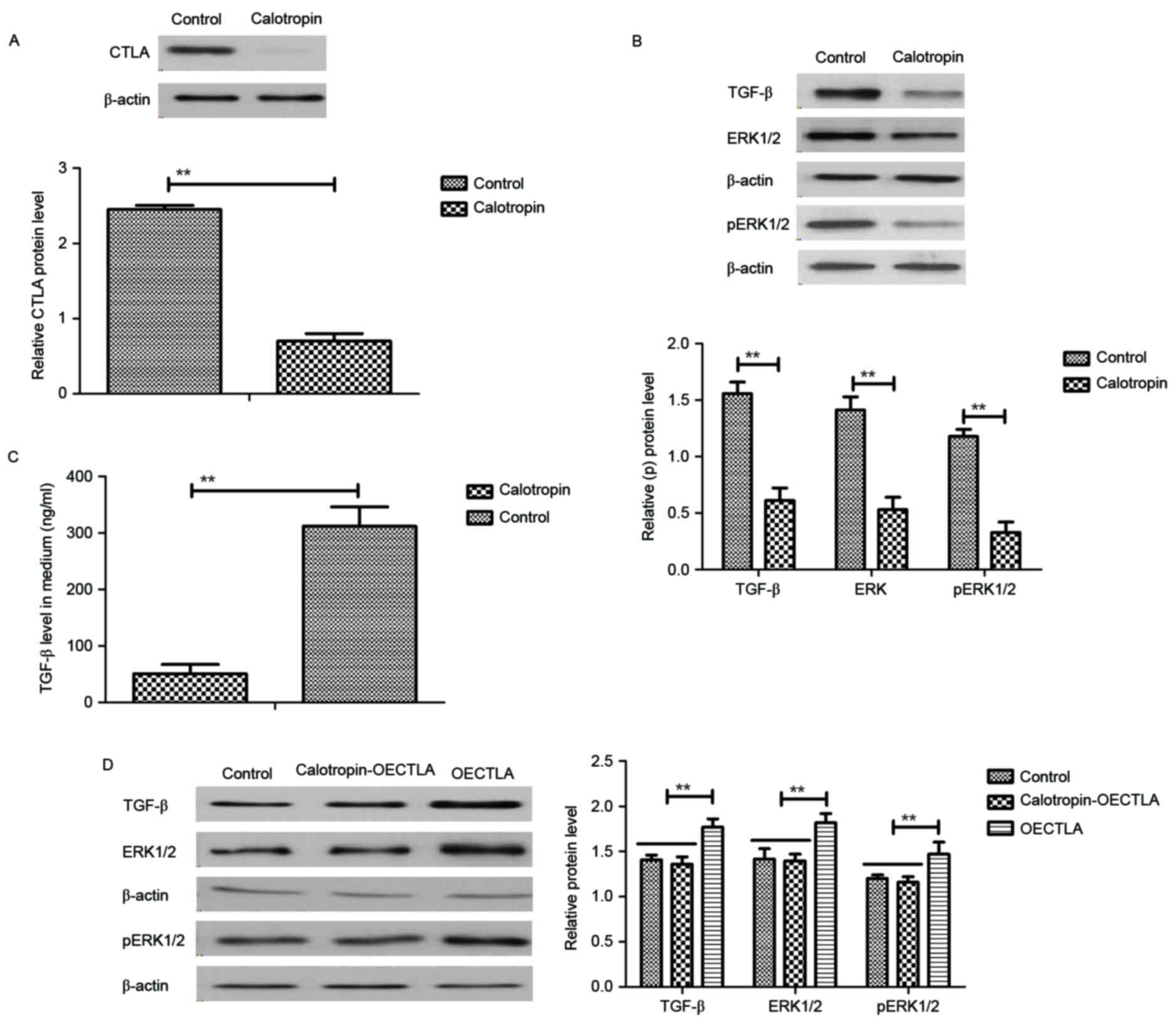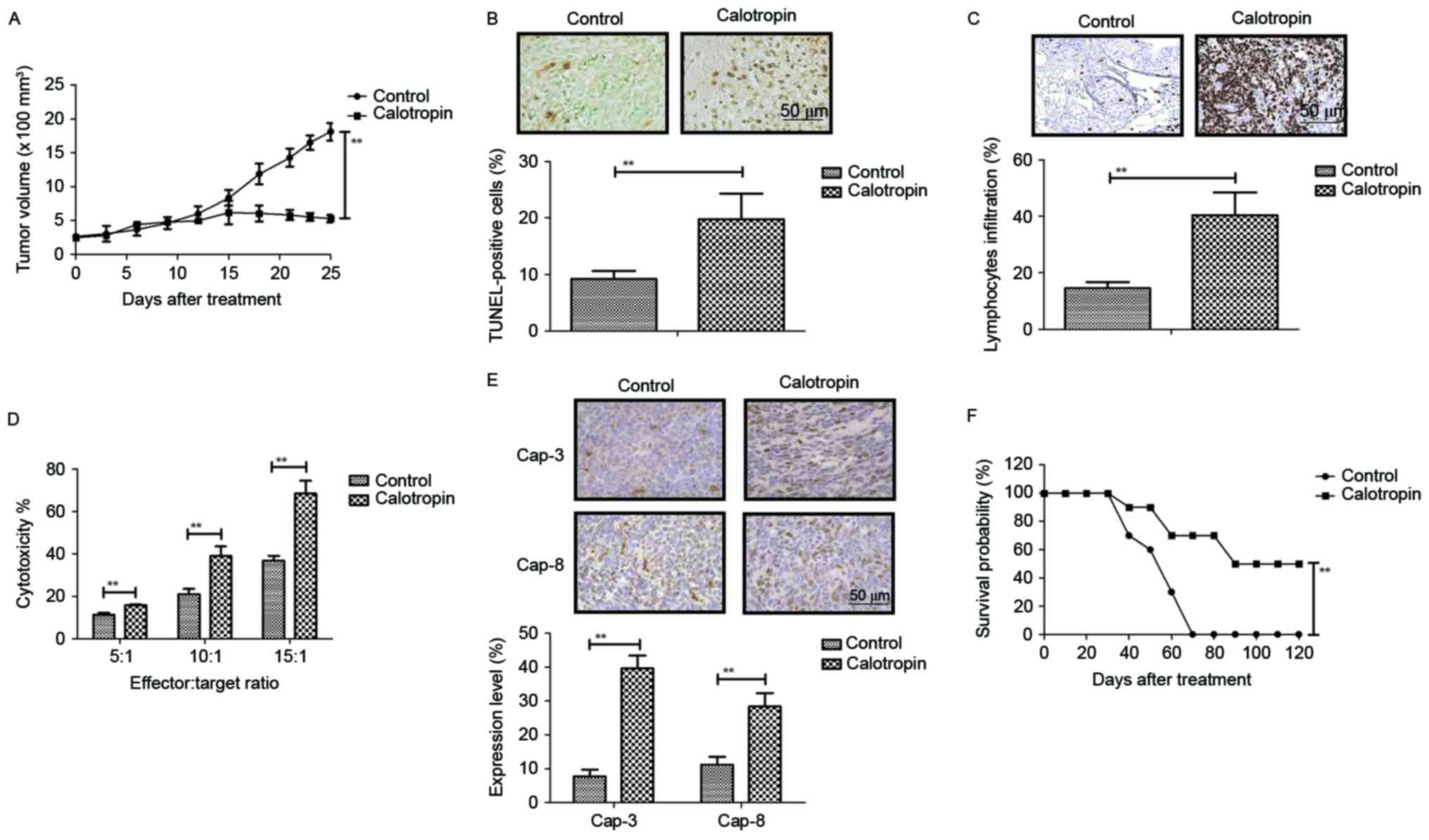|
1
|
Paesmans M, Grigoriu B, Ocak S, Roelandts
M, Lafitte JJ, Holbrechts S, Berghmans T, Meert AP, Moretti L,
Danyi S, et al: Systematic qualitative review of randomised trials
conducted in nonsmall cell lung cancer with a noninferiority or
equivalence design. Eur Respir J. 45:511–524. 2015. View Article : Google Scholar : PubMed/NCBI
|
|
2
|
D'Antonio C, Milano A, Righini R, Onesti
CE, Bassanelli M, Falcone R, Paris I, Lauro S and Marchetti P:
Pharmacogenomics in lung cancer chemotherapy: A review of what the
oncologist should know. Anticancer Res. 34:5241–5250.
2014.PubMed/NCBI
|
|
3
|
Brody H: Lung cancer. Nature. 513:S12014.
View Article : Google Scholar : PubMed/NCBI
|
|
4
|
Moro-Sibilot D, Smit E, de Castro Carpeño
J, Lesniewski-Kmak K, Aerts JG, Villatoro R, Kraaij K, Nacerddine
K, Dyachkova Y, Smith KT, et al: Non-small cell lung cancer
patients with brain metastases treated with first-line
platinum-doublet chemotherapy: Analysis from the European FRAME
study. Lung Cancer. 90:427–432. 2015. View Article : Google Scholar : PubMed/NCBI
|
|
5
|
Barnett SA, Downey RJ, Zheng J, Plourde G,
Shen R, Chaft J, Akhurst T, Park BJ and Rusch VW: Utility of
routine PET imaging to predict response and survival after
induction therapy for non-small cell lung cancer. Ann Thorac Surg.
101:1052–1059. 2016. View Article : Google Scholar : PubMed/NCBI
|
|
6
|
Fenton-Ambrose L and Kazerooni EA:
Preventative care: Lung-cancer screens now worth the cost. Nature.
514:352014. View
Article : Google Scholar : PubMed/NCBI
|
|
7
|
Sawabata N, Nagayasu T, Kadota Y, Goto T,
Horio H, Mori T, Yamashita S and Iwasaki A: Risk assessment of lung
resection for lung cancer according to pulmonary function:
Republication of systematic review and proposals by guideline
committee of the Japanese association for chest surgery 2014. Gen
Thorac Cardiovasc Surg. 63:14–21. 2015. View Article : Google Scholar : PubMed/NCBI
|
|
8
|
Sekiguchi Y, Shimada A, Imai H,
Wakabayashi M, Sugimoto K, Nakamura N, Sawada T, Komatsu N and
Noguchi M: Patient with refractory multiple myeloma developing
eosinophilia after lenalidomide treatment and lung cancer 9 months
later: Case report and review of the literature. Indian J Hematol
Blood Transfus. 30 Suppl 1:S264–S270. 2014. View Article : Google Scholar
|
|
9
|
Schild SE, Rule WG, Ashman JB, Vora SA,
Keole S, Anand A, Liu W and Bues M: Proton beam therapy for locally
advanced lung cancer: A review. World J Clin Oncol. 5:568–575.
2014. View Article : Google Scholar : PubMed/NCBI
|
|
10
|
Kato T, Fujii T, Ide M, Takada T, Sutoh T,
Morita H, Yajima R, Yamaguchi S, Tsutsumi S, Asao T, et al: Effect
of long interval between hyperthermochemoradiation therapy and
surgery for rectal cancer on apoptosis, proliferation and tumor
response. Anticancer Res. 34:3141–3146. 2014.PubMed/NCBI
|
|
11
|
Mo EP, Zhang RR, Xu J, Zhang H, Wang XX,
Tan QT, Liu FL, Jiang RW and Cai SH: Calotropin from Asclepias
curasavica induces cell cycle arrest and apoptosis in
cisplatin-resistant lung cancer cells. Biochem Biophys Res Commun.
478:710–715. 2016. View Article : Google Scholar : PubMed/NCBI
|
|
12
|
Park HY, Toume K, Arai MA, Sadhu SK, Ahmed
F and Ishibashi M: Calotropin: A cardenolide from calotropis
gigantea that inhibits Wnt signaling by increasing casein kinase
1alpha in colon cancer cells. Chembiochem. 15:872–878. 2014.
View Article : Google Scholar : PubMed/NCBI
|
|
13
|
Wang SC, Lu MC, Chen HL, Tseng HI, Ke YY,
Wu YC and Yang PY: Cytotoxicity of calotropin is through caspase
activation and downregulation of anti-apoptotic proteins in K562
cells. Cell Biol Int. 33:1230–1236. 2009. View Article : Google Scholar : PubMed/NCBI
|
|
14
|
Davey G and Wu Z: Attitudes in China
toward the use of animals in laboratory research. Altern Lab Anim.
35:313–316. 2007.PubMed/NCBI
|
|
15
|
Livak KJ and Schmittgen TD: Analysis of
relative gene expression data using real-time quantitative PCR and
the 2(-Delta Delta C(T)) method. Methods. 25:402–408. 2001.
View Article : Google Scholar : PubMed/NCBI
|
|
16
|
Renshaw A and Elsheikh TM: A validation
study of the Focalpoint GS imaging system for gynecologic cytology
screening. Cancer Cytopathol. 121:737–738. 2013. View Article : Google Scholar : PubMed/NCBI
|
|
17
|
Zhuang T, Djemil T, Qi P, Magnelli A,
Stephans K, Videtic G and Xia P: Dose calculation differences
between Monte Carlo and pencil beam depend on the tumor locations
and volumes for lung stereotactic body radiation therapy. J Appl
Clin Med Phys. 14:40112013. View Article : Google Scholar : PubMed/NCBI
|
|
18
|
Kalyuzhny AE: Combination of TUNEL assay
with immunohistochemistry for simultaneous detection of DNA
fragmentation and oxidative cell damage. Methods Mol Biol.
682:15–27. 2011. View Article : Google Scholar : PubMed/NCBI
|
|
19
|
Gharavi N and El-Kadi AO: Expression of
cytochrome P450 in lung tumor. Curr Drug Metab. 5:203–210. 2004.
View Article : Google Scholar : PubMed/NCBI
|
|
20
|
Song W, Ma Y, Wang J, Brantley-Sieders D
and Chen J: JNK signaling mediates EPHA2-dependent tumor cell
proliferation, motility, and cancer stem cell-like properties in
non-small cell lung cancer. Cancer Res. 74:2444–2454. 2014.
View Article : Google Scholar : PubMed/NCBI
|
|
21
|
Magnuson WJ, Yeung JT, Guillod PD,
Gettinger SN, Yu JB and Chiang VL: Impact of deferring radiation
therapy in patients with epidermal growth factor receptor-mutant
non-small cell lung cancer who develop brain metastases. Int J
Radiat Oncol Biol Phys. 95:673–679. 2016. View Article : Google Scholar : PubMed/NCBI
|
|
22
|
Jiang SY, Zhao J, Wang MZ, Huo Z, Zhang J,
Zhong W and Xu Y: Small-cell lung cancer transformation in patients
with pulmonary adenocarcinoma: A case report and review of
literature. Medicine (Baltimore). 95:e27522016. View Article : Google Scholar : PubMed/NCBI
|
|
23
|
Shivapurkar N, Reddy J, Chaudhary PM and
Gazdar AF: Apoptosis and lung cancer: A review. J Cell Biochem.
88:885–898. 2003. View Article : Google Scholar : PubMed/NCBI
|
|
24
|
Drebert Z, MacAskill M, Doughty-Shenton D,
De Bosscher K, Bracke M, Hadoke PWF and Beck IM: Colon
cancer-derived myofibroblasts increase endothelial cell migration
by glucocorticoid-sensitive secretion of a pro-migratory factor.
Vascul Pharmacol. 89:19–30. 2017. View Article : Google Scholar : PubMed/NCBI
|
|
25
|
Kim CW, Go RE, Lee HM, Hwang KA, Lee K,
Kim B, Lee MY and Choi KC: Cigarette smoke extracts induced the
colon cancer migration via regulating epithelial mesenchymal
transition and metastatic genes in human colon cancer cells.
Environ Toxicol. 32:690–704. 2017. View Article : Google Scholar : PubMed/NCBI
|
|
26
|
Klyushnenkova EN, Riabov VB, Kouiavskaia
DV, Wietsma A, Zhan M and Alexander RB: Breaking immune tolerance
by targeting CD25+ regulatory T cells is essential for the
anti-tumor effect of the CTLA-4 blockade in an HLA-DR transgenic
mouse model of prostate cancer. Prostate. 74:1423–1432. 2014.
View Article : Google Scholar : PubMed/NCBI
|
|
27
|
Duraiswamy J, Freeman GJ and Coukos G:
Dual blockade of PD-1 and CTLA-4 combined with tumor vaccine
effectively restores T-cell rejection function in tumors-response.
Cancer Res. 74:633–635. 2014. View Article : Google Scholar : PubMed/NCBI
|
|
28
|
Son CH, Bae JH, Shin DY, Lee HR, Choi YJ,
Jo WS, Jung Ho M, Kang CD, Yang K and Park YS: CTLA-4 blockade
enhances antitumor immunity of intratumoral injection of immature
dendritic cells into irradiated tumor in a mouse colon cancer
model. J Immunother. 37:1–7. 2014. View Article : Google Scholar : PubMed/NCBI
|
|
29
|
Gardner D, Jeffery LE and Sansom DM:
Understanding the CD28/CTLA-4 (CD152) pathway and its implications
for costimulatory blockade. Am J Transplant. 14:1985–1991. 2014.
View Article : Google Scholar : PubMed/NCBI
|
|
30
|
Li F, Guo Z, Yu H, Zhang X, Si T, Liu C,
Yang X and Qi L: Anti-tumor immunological response induced by
cryoablation and anti-CTLA-4 antibody in an in vivo RM-1 cell
prostate cancer murine model. Neoplasma. 61:659–671. 2014.
View Article : Google Scholar : PubMed/NCBI
|
|
31
|
Slattery ML, Herrick JS, Lundgreen A and
Wolff RK: Genetic variation in the TGF-β signaling pathway and
colon and rectal cancer risk. Cancer Epidemiol Biomarkers Prev.
20:57–69. 2011. View Article : Google Scholar : PubMed/NCBI
|
|
32
|
Slattery ML, Lundgreen A, Herrick JS, Caan
BJ, Potter JD and Wolff RK: Associations between genetic variation
in RUNX1, RUNX2, RUNX3, MAPK1 and eIF4E and riskof colon and rectal
cancer: Additional support for a TGF-β-signaling pathway.
Carcinogenesis. 32:318–326. 2011. View Article : Google Scholar : PubMed/NCBI
|
|
33
|
Becker C, Fantini MC and Neurath MF:
TGF-beta as a T cell regulator in colitis and colon cancer.
Cytokine Growth Factor Rev. 17:97–106. 2006. View Article : Google Scholar : PubMed/NCBI
|
|
34
|
Becker C, Fantini MC, Schramm C, Lehr HA,
Wirtz S, Nikolaev A, Burg J, Strand S, Kiesslich R, Huber S, et al:
TGF-beta suppresses tumor progression in colon cancer by inhibition
of IL-6 trans-signaling. Immunity. 21:491–501. 2004. View Article : Google Scholar : PubMed/NCBI
|
|
35
|
Kuchta-Noctor AM, Murray BA, Stanton C,
Devery R and Kelly PM: Anticancer activity of buttermilk against
SW480 colon cancer cells is associated with caspase-independent
cell death and attenuation of Wnt, Akt, and ERK signaling. Nutr
Cancer. 68:1234–1246. 2016. View Article : Google Scholar : PubMed/NCBI
|
|
36
|
Wang CY, Guo ST, Wang JY, Yan XG, Farrelly
M, Zhang YY, Liu F, Yari H, La T, Lei FX, et al: Reactivation of
ERK and Akt confers resistance of mutant BRAF colon cancer cells to
the HSP90 inhibitor AUY922. Oncotarget. 7:49597–49610.
2016.PubMed/NCBI
|
|
37
|
Beck SE, Jung BH, Del Rosario E, Gomez J
and Carethers JM: BMP-induced growth suppression in colon cancer
cells is mediated by p21WAF1 stabilization and modulated by
RAS/ERK. Cell Signal. 19:1465–1472. 2007. View Article : Google Scholar : PubMed/NCBI
|
|
38
|
Grijelmo C, Rodrigue C, Svrcek M, Bruyneel
E, Hendrix A, de Wever O and Gespach C: Proinvasive activity of
BMP-7 through SMAD4/src-independent and ERK/Rac/JNK-dependent
signaling pathways in colon cancer cells. Cell Signal.
19:1722–1732. 2007. View Article : Google Scholar : PubMed/NCBI
|
|
39
|
de Oca J, Azuara D, Sanchez-Santos R,
Navarro M, Capella G, Moreno V, Sola A, Hotter G, Biondo S, Osorio
A, et al: Caspase-3 activity, response to chemotherapy and clinical
outcome in patients with colon cancer. Int J Colorectal Dis.
23:21–27. 2008. View Article : Google Scholar : PubMed/NCBI
|
|
40
|
Vadde R, Radhakrishnan S, Reddivari L and
Vanamala JK: Triphala extract suppresses proliferation and induces
apoptosis in human colon cancer stem cells via suppressing
c-Myc/Cyclin D1 and elevation of Bax/Bcl-2 ratio. Biomed Res Int.
2015:6492632015. View Article : Google Scholar : PubMed/NCBI
|


















